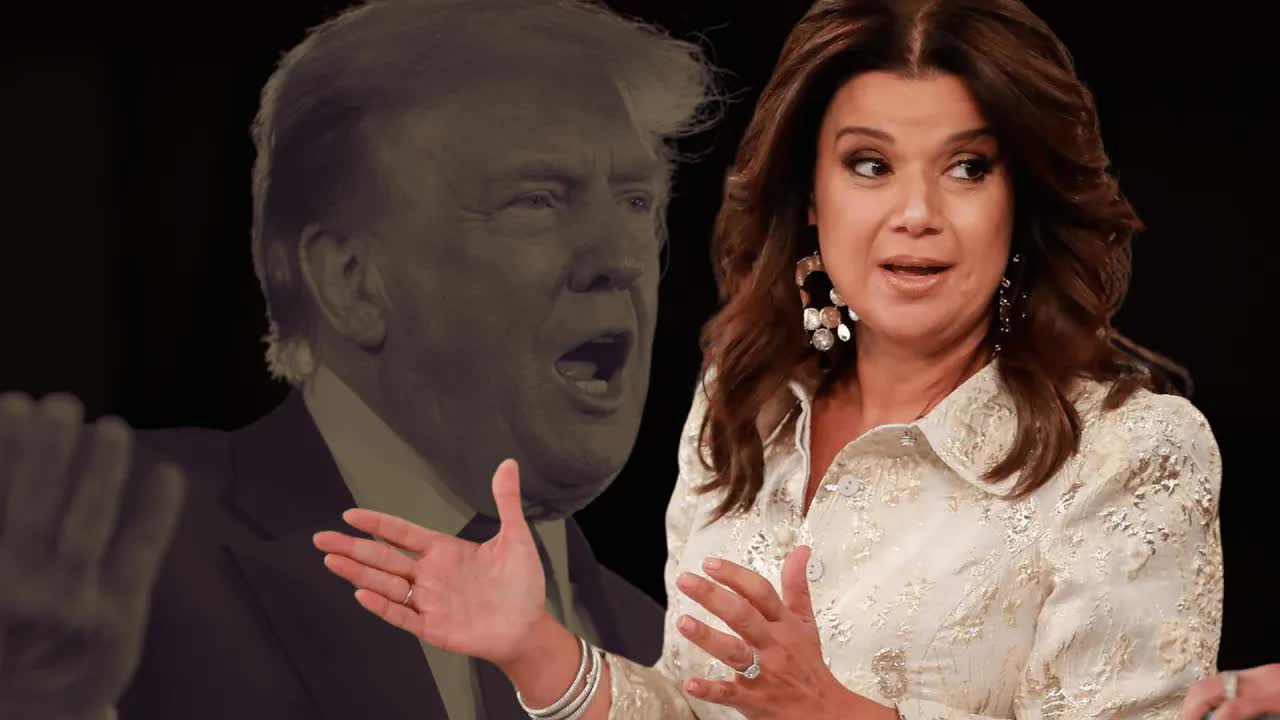In a tumultuous political landscape, Anna Navarro has emerged as a compelling figure, particularly in light of recent events surrounding Donald Trump.
As speculation mounts about his potential return to the presidency, concerns are growing about the company he keeps.
Disturbingly, Navarro highlights that while Trump’s family is absent from his plane, individuals like Marjorie Taylor Greene—often labeled as conspiracy theorists—are not.
This raises alarming questions about the influence such figures may wield in a future Trump administration.
The backdrop of Navarro’s critique is her own journey through the complexities of American politics, shaped by her immigrant experience.
Originally from Nicaragua, she arrived in the U.S. as a child and faced the daunting task of acclimating to a new culture and language.
This formative experience instilled in her a profound appreciation for the opportunities America offers, alongside a fierce commitment to protecting its core values.
For Navarro, her identity as an immigrant is not just a part of her story; it profoundly informs her advocacy for immigrant rights.
Navarro often reflects on her early struggles with language, recalling her time in English as a Second Language classes.
She vividly describes the embarrassment of taking pop quizzes without understanding the questions, resorting to writing fake names to mask her confusion.
Such personal anecdotes lend authenticity to her political commentary, allowing her to connect deeply with the often abstract discussions surrounding immigration policy.
As Navarro navigated her way through Republican politics, she established herself as a principled conservative, advocating for traditional values while also calling for a more inclusive party.
However, as Trump’s influence grew, she found herself increasingly at odds with the party’s trajectory.
Her criticisms intensified, particularly regarding Trump’s rhetoric towards immigrants and minorities, which she deemed harmful and divisive.
One incident that particularly infuriated Navarro was Trump’s derogatory remarks aimed at a federal judge of Mexican heritage.
Her response was both passionate and personal, arguing that Trump’s attacks were not only legally questionable but also deeply offensive to Hispanic Americans.
She emphasized that Mexican-Americans are just as American as anyone else, highlighting their sacrifices for the nation.
This incident exemplifies how Navarro’s critiques extend beyond mere political disagreement; they are rooted in her lived experiences and her commitment to equality.
Despite facing backlash from within her party, Navarro has stood her ground, viewing these attacks as a badge of honor.
She takes pride in being targeted by Trump and his allies, interpreting it as validation of her principles.
This resilience has endeared her to many who see her as a beacon of reason in a party that seems to have strayed from its foundational values.
As the political climate grows increasingly polarized, Navarro has positioned herself as a clarion call for a return to principled conservatism.
She urges a united front against the potential threat of a second Trump presidency, regardless of who the Democratic nominee may be.
Her insistence that defeating Trump should be the priority resonates with many who share her concerns about the future of democracy.
Navarro’s worries about Trump’s potential return extend beyond policy disagreements.
She perceives his actions and rhetoric as fundamentally undermining democratic norms and the rule of law.
The stakes, she argues, are incredibly high, with the possibility of mass deportations and the election of a convicted felon looming over the upcoming election.
Her stark warnings emphasize the urgency of the situation, framing the choice as one between democracy and authoritarianism.
Amidst her fierce criticism of Trump, Navarro remains proud of her conservative roots and Hispanic heritage.
Her participation in White House events celebrating Hispanic culture reflects her commitment to representation and inclusivity in politics.
She appreciates the efforts made by the current administration to ensure diversity, noting the significance of having a government that mirrors the nation’s demographics.
Navarro’s journey from an immigrant child to a prominent political commentator illustrates both the promise and challenges inherent in the American dream.
Despite facing numerous obstacles as a Hispanic woman in a predominantly white male arena, she has persevered, advocating for a more inclusive political landscape.
Her courage to speak out against the erosion of democratic values is both commendable and necessary.
As the 2024 election approaches, Navarro’s voice has become increasingly vital.
She calls for unity among those opposed to Trump, emphasizing the importance of collaboration to safeguard democratic principles.
Her story serves as a reminder that individual voices can shape national conversations, and her advocacy is a testament to the ongoing struggle to realize America’s ideals.
In a time when democracy faces significant challenges, Anna Navarro stands as a powerful advocate for change.
Her commitment to defending democratic institutions and promoting inclusivity is crucial as the nation navigates complex issues.
Ultimately, Navarro’s journey reflects the ongoing quest for a more perfect union, inspiring others to engage actively in the democratic process and uphold the values that define America.































